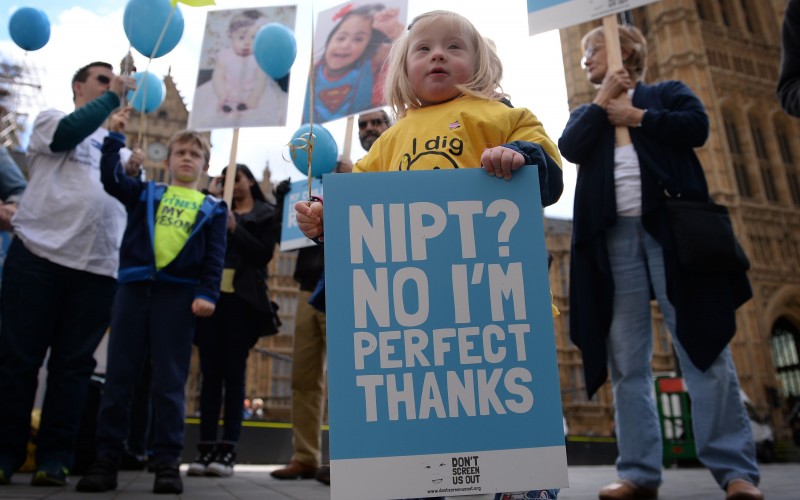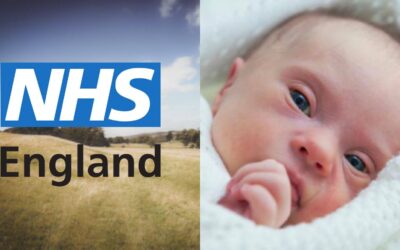PRESS RELEASE FOR IMMEDIATE RELEASE
Scottish introduction of new Down’s syndrome screening test will likely see rise in abortions
The number of babies with Down’s syndrome aborted in Scotland is likely to increase following a decision announced by the Government.
Public Health Scotland has announced the rollout of the Non-Invasive Prenatal Test (NIPT) into its National Pregnancy Screening Programme at all NHS hospitals. The rollout went ahead without plans being published by the Scottish Government as revealed in a FOI request.
Scottish families living with Down’s syndrome and campaigners are concerned that without the right reforms, the introduction of the test could contribute to more children with Down’s syndrome being screened out by termination.
Professor Alan Cameron, a member of the UK NSC, introduced the Harmony prenatal blood test (an NIPT) into private practise in Scotland in 2013. The NIPT test was piloted in Tayside in 2014 as part of the UK NIPT RAPID review.
The 2015 UN report from the International Bioethics Committee (IBC) of the United Nations Educational, Social, and Cultural Organisation (UNESCO) issued a stern warning about the drive to adopt NIPT in national screening programmes, “the potential ethical disadvantages of NIPT can be summarised as routinisation and institutionalisation of the choice of not giving birth to an ill or disabled child”.
Subsequently, the Nuffield Council of Bioethics published a 149-page report covering many issues surrounding the use of NIPT in 2017. They also warned: “The UK National Screening Committee should take better consideration of the particular consequences, some of which will be unintended, of prenatal screening programmes where termination of pregnancy is an option.”
In the same year, a report published by Down’s syndrome Scotland revealed “very poor attitudes’ and ‘appalling behaviours’ from professionals after Down’s syndrome was identified prenatally.”
Research commissioned in 2019 by Public Health Scotland, who administer the UK NSC screening programmes, ahead of the rollout of NIPT found that two thirds of those interviewed had no depth of knowledge about Down’s syndrome: “So, even whilst Down’s syndrome was recognised by virtually all respondents, most admitted that their specific knowledge of Down’s syndrome was limited.”
In the same year, an investigation by The Sunday Times found that the number of babies born with Down’s syndrome has fallen by 30% in the small number of NHS hospitals in England that have introduced the new form of screening.
Don’t Screen Us Out are calling on the Scottish Government as a matter of urgency to assess the impact that the introduction of the test will have on people in Scotland living with Down’s syndrome and to introduce reforms, such as guidelines on antenatal care for women found to be carrying a baby with Down’s syndrome. Otherwise, NIPT may only worsen the culture of informally eugenic anti-disabled discrimination that exists in fetal anomaly screening programmes.
Lynn Murray, who lives in Edinburgh and is the spokesperson for Don’t Screen Us Out said:
“As a mother of a daughter who has Down’s syndrome, I see every day the unique value she brings to our family and the positive impact she has on others around her. That lived experience isn’t a fundamental of the screening programme.”
“Disability campaigners have repeatedly called on the Scottish Government and Public Health Scotland to carry out an impact assessment of the proposed rollout. Sadly these calls have been ignored.”
“Figures released last year realised the fears of the Down’s syndrome community that rolling out these tests would lead to a large drop in the number of babies with Down’s syndrome were not unfounded.”
“While we are pleased to see that there have been improvements in the guidance outlining how a diagnosis of Down’s syndrome is communicated to parents, no assessment of the impact of new screening has been carried out by the Scottish Government, so we expect to see a similar increase in abortions for Down’s syndrome when the test is rolled out here in Scotland. Such outcomes are likely to have a profoundly negative impact on the Down’s syndrome community.”
“Public Health Scotland’s own research commissioned in 2019 found that two thirds of those interviewed had no depth of knowledge about Down’s syndrome. That should have set alarm bells ringing.”
“We are calling on Public Health Scotland and the Scottish Government to undertake an urgent inquiry into the obvious concerns and the impact that these tests are having on birth numbers of babies with Down’s syndrome.”
“There is mounting evidence that an unconscious bias exists in the Fetal Anomaly Screening Programme. We need the right reforms to turn things around and ensure that the tenets of diversity and inclusivity that we hold dear in Scotland extend to these screening programmes.”
ENDS
- For more information on the Don’t Screen Us Out campaign, see our website www.dontscreenusout.org or email dontscreenusout@gmail.com
- For interviews, contact Don’t Screen Us Out spokesperson: Lynn Murray – dontscreenusout@gmail.com / 07840966736
- For a full list of previous coverage on this issue see our website – www.dontscreenusout.org



